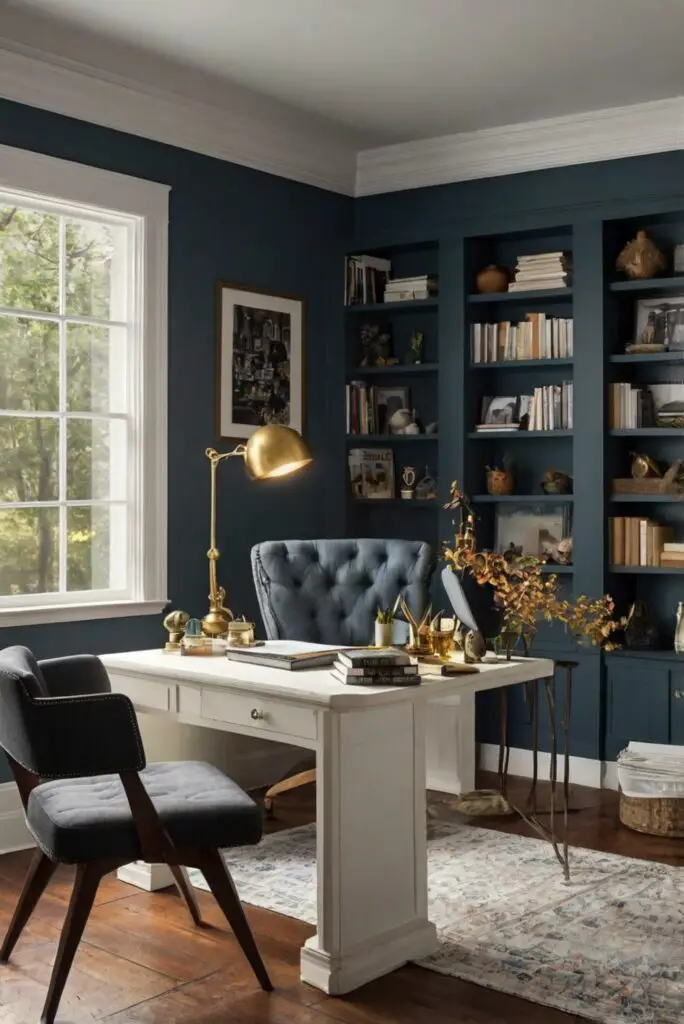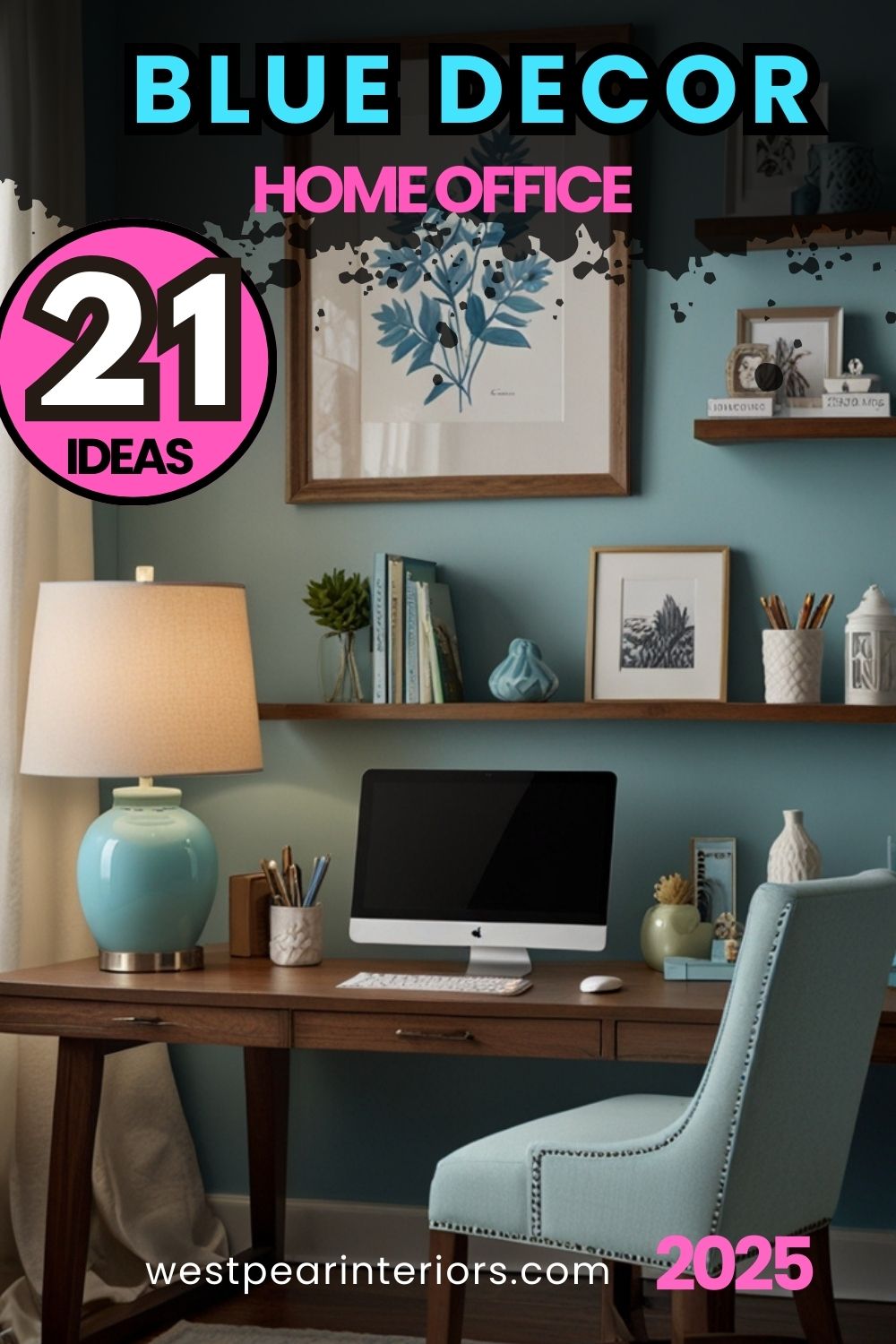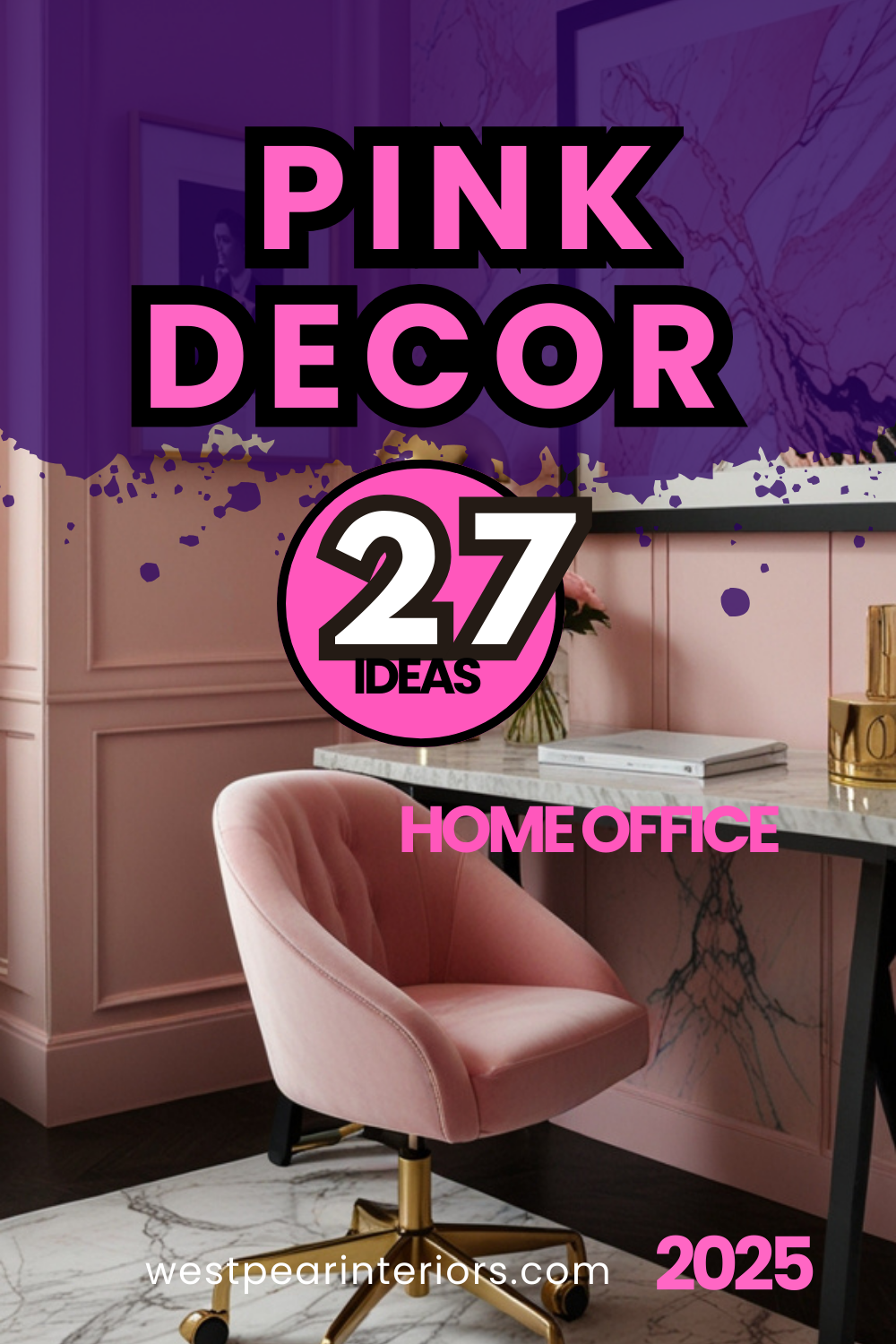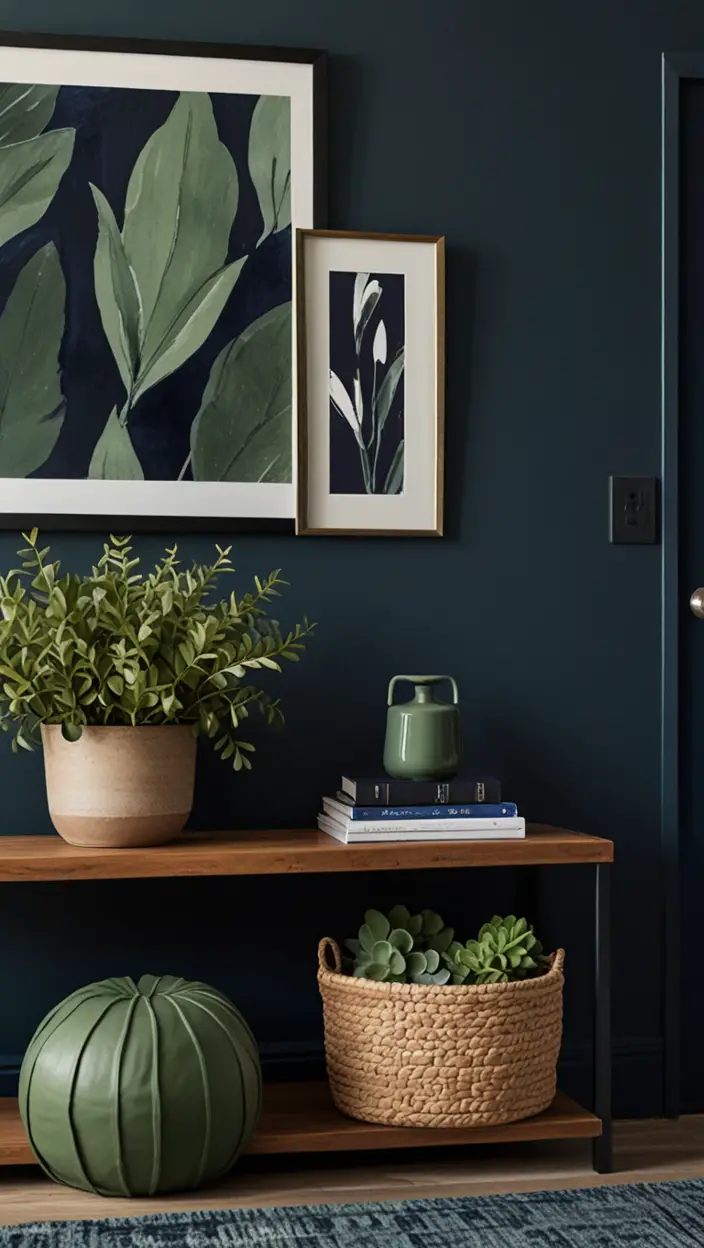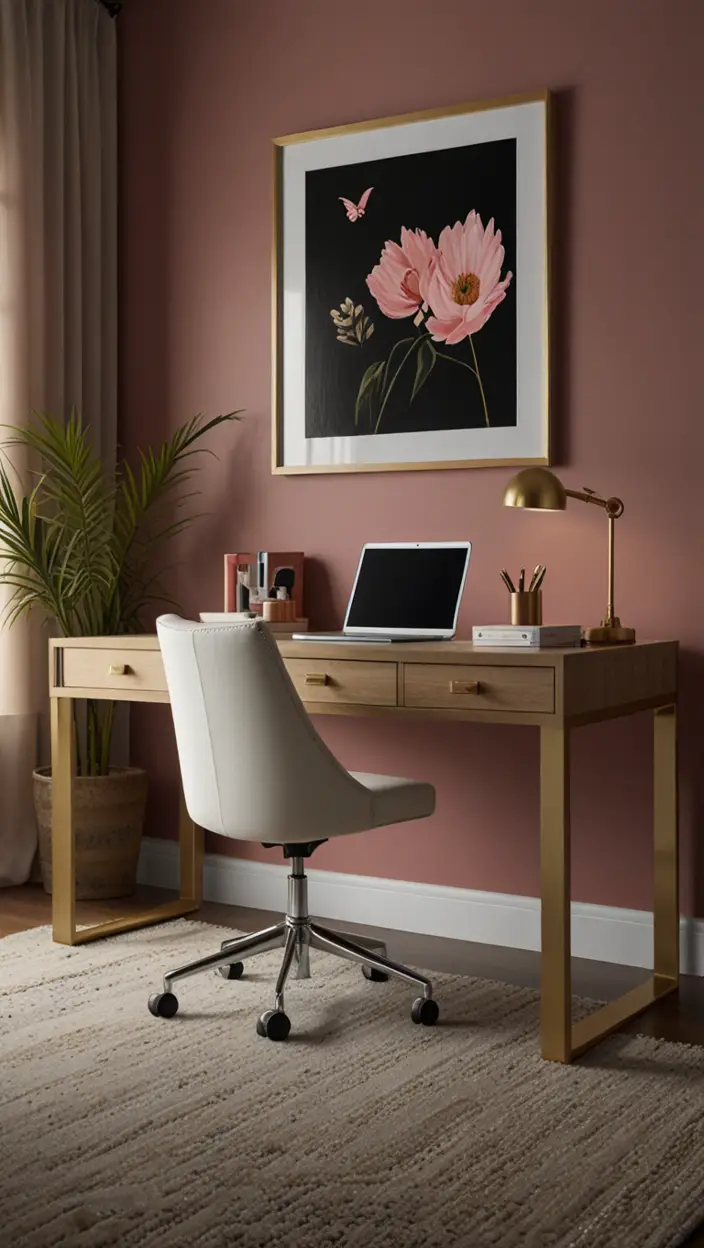Looking to create a timeless color scheme for your home office? Discover the expert tips and tricks in this ultimate guide.
Choosing a timeless color scheme for your home office involves considering the overall vibe you want to create. Stick to classic neutrals like whites, grays, and beiges as your base colors, then add pops of color with accessories or furniture. Consider the natural light in the room when selecting colors to ensure the space feels balanced. Incorporating plants or artwork can also enhance the overall look. Opt for colors that promote productivity and focus, such as blues or greens. Creating a color palette with complementary shades can tie the room together and create a cohesive look. Remember to keep the space organized to maintain a pleasant work environment.
Choosing a timeless color scheme for your home office is crucial to create a space that remains stylish and functional for years to come. To achieve this, consider the following guidelines and strategies:
1. How do I choose a color scheme that will stand the test of time for my home office?
My Lovely Spring Paint for 2025
Ready for a Spring Makeover? Explore the Freshest 2025 Paint Trends!
White Sage/Green SW Pistachio green Soft blue Honeysweet/Orange Pink Sugar Sage Tint BMAs an Amazon Associate, I may earn a commission from qualifying purchases at no extra cost to you.
When selecting colors for your home office, opt for timeless shades that are versatile and easy to work with. Neutral colors like white, beige, gray, and taupe serve as excellent base colors that can be paired with various accent hues. These neutrals provide a clean and sophisticated backdrop that can adapt to changing trends and personal preferences over time.
2. What are some classic color combinations that work well in a home office setting?
Classic color combinations such as black and white, navy and white, or gray and yellow are timeless choices for a home office. These pairings offer a balance of contrast and harmony, creating a visually appealing and professional environment. Incorporating these classic color combinations in your home office can enhance productivity and focus.
3. Can I incorporate bold colors into a timeless color scheme for my home office?
While timeless color schemes typically involve neutral and muted tones, you can introduce bold colors as accent pieces or accessories to add personality and character to your home office. Consider using bold hues sparingly to create a focal point or highlight certain areas within the space. This allows you to infuse vibrancy without overwhelming the overall design.
4. How can I ensure the colors I choose for my home office complement the existing decor?
My fAV Spring DECOR for 2025
Discover Spring’s Best 2025 Decor Combinations – Perfect for Any Room!
Oversized Indoor Plants White Curved Sofas Rugs BOH Brown Cream Moroccan Hype Boho Rug Outdoor Patio Furniture Sets Topfinel Pillow CoversAs an Amazon Associate, I may earn a commission from qualifying purchases at no extra cost to you.
When selecting colors for your home office, take into account the existing decor elements such as furniture, flooring, and artwork. Choose colors that complement these features rather than clash with them. Consider creating a mood board or color palette to visualize how the selected colors will harmonize with the existing design scheme.
5. What are some alternative paint options I can consider for my home office to achieve a timeless look?
In addition to traditional paint colors, you can explore alternative options such as chalkboard paint, metallic finishes, or textured wall treatments to create a unique and timeless look in your home office. These paint options add texture, depth, and visual interest to the space while maintaining a classic appeal.
6. Why is it important to consider the longevity of a color scheme when designing a home office?
Considering the longevity of a color scheme is essential when designing a home office because it ensures that the space remains relevant and appealing for an extended period. By choosing timeless colors, you can avoid frequent redecorating or renovations, saving time and resources in the long run. A timeless color scheme fosters a cohesive and polished look that withstands changing trends.
7. How can I stay organized when selecting colors for my home office to create a cohesive and timeless aesthetic?
To stay organized when selecting colors for your home office, create a color scheme based on the 60-30-10 rule. Allocate 60% of the room to a dominant color (usually a neutral), 30% to a secondary color (a complementing shade), and 10% to an accent color (a bold hue). This balanced approach ensures a cohesive and visually appealing color scheme that stands the test of time.
8. What are some tips for integrating patterns and textures into a timeless color scheme for a home office?
Integrating patterns and textures can enhance the visual appeal of a timeless color scheme in a home office. Consider using textured wallpapers, patterned rugs, or fabric accents to add depth and interest to the space. Make sure to balance the use of patterns with solid colors to maintain a cohesive and harmonious look.
9. How can natural elements such as plants and wood finishes complement a timeless color scheme in a home office?
Incorporating natural elements like plants and wood finishes can add warmth and texture to a timeless color scheme in a home office. Greenery brings a refreshing touch of nature indoors, while wood finishes introduce a sense of organic beauty and richness. These elements create a balanced and inviting environment that enhances productivity and well-being.
Key Takeaways:
– Choose neutral base colors for a timeless foundation in your home office.
– Incorporate classic color combinations like black and white or navy and white.
– Use bold colors as accent pieces to infuse personality into the space.
– Ensure the selected colors complement the existing decor elements.
– Explore alternative paint options such as chalkboard paint or metallic finishes for a unique look.
– Consider the longevity of a color scheme to avoid frequent redecorating.
– Organize colors based on the 60-30-10 rule for a cohesive aesthetic.
– Integrate patterns and textures thoughtfully to enhance the timeless color scheme.
– Add natural elements like plants and wood finishes to bring warmth and balance to the space.

